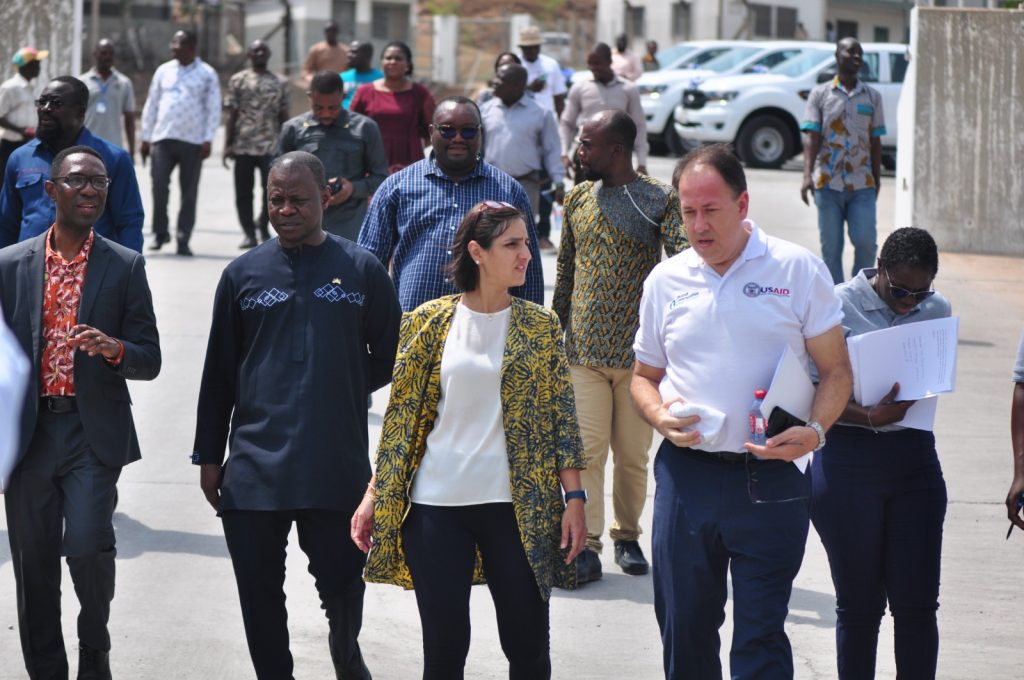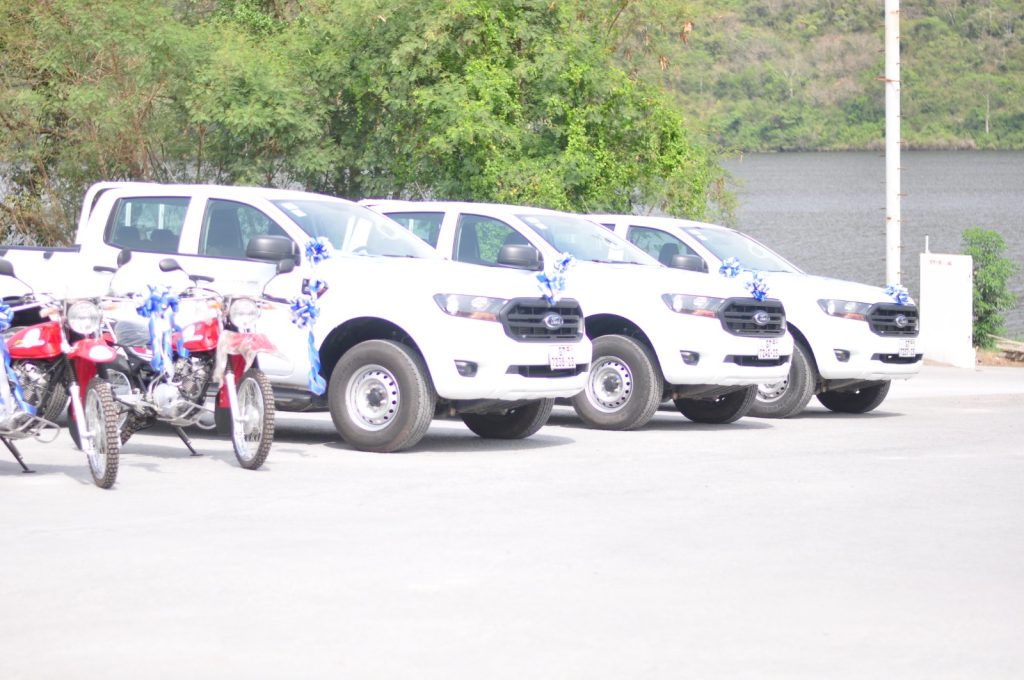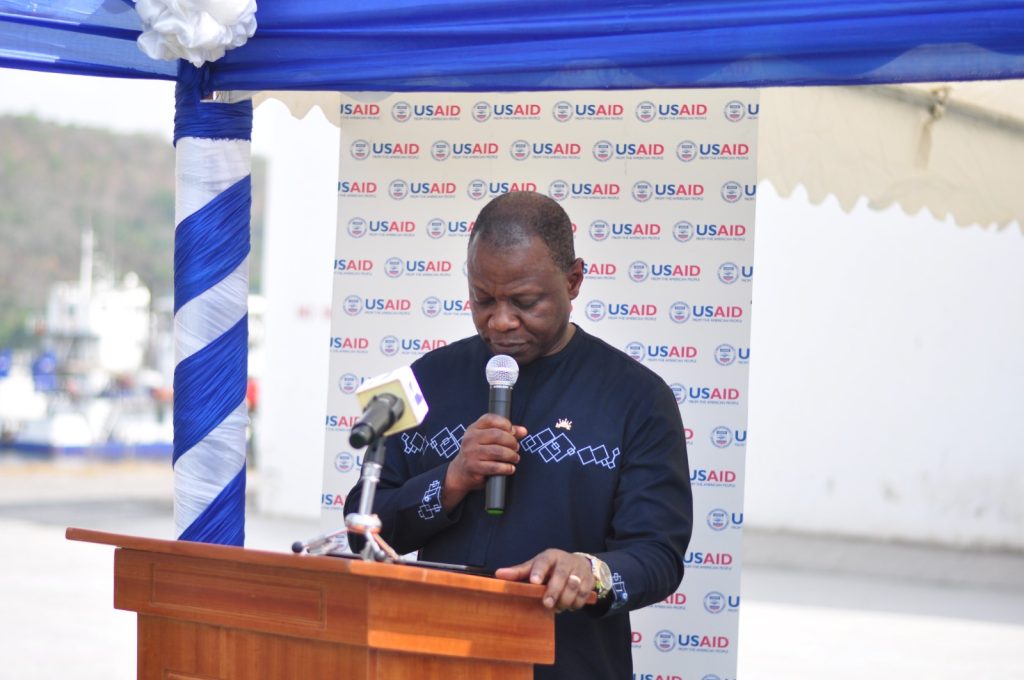Akosombo (E/R), March 1, GNA – Global Communities in collaboration with the USAID has presented a boat (Health Voyager) and vehicles and motorcycles to the Ghana Health Service to be used in Island Communities along the Volta Lake in the Oti Region.
This innovative solution aims to surmount the historical challenge of reaching isolated island communities and ensuring improved access to healthcare services.
The 20-foot boat is poised to bring essential healthcare services directly to the doorstep of those in need, marking a significant advancement in healthcare accessibility for communities such as Tokpo, Dentemanso, Yaben, Kotokoli, Tekperkope, Obimpeh, and nearby communities along the Volta Lake in the Krachi East and Krachi West districts of the Oti region.
The boat will bring essential healthcare services directly to the doorstep of those in need, marking a significant advancement in healthcare accessibility for communities.
Designed to deliver optimal performance and safety in challenging environments, the boat is a round bilge with spray rails to ensure stability and manoeuvrability.

It is constructed from reinforced fibreglass for durability and longevity, measuring 20 feet in length, with a width of 6.5 feet and a depth of 3.08 feet.
The boat accommodates 19 adults comfortably with athwart seats with its interior features including a storage cabin at the bow for assorted items, a tool compartment for easy access to essential tools, and a washroom or change room for passenger convenience.
It has a remote steering system and control mechanisms are strategically placed at the front, ensuring efficient operation and two outboard motors, each having a capacity of 40 HP, are mounted at the rear, providing reliable propulsion.
The superstructure includes a galvanized canopy frame with a foldable tarpaulin for passenger shelter against rain and sun, a front upper deck with rail guards for onlooker safety, and a mounted navigator’s seat with a backrest.
Additionally, the boat is equipped with a metal anchor stowed in the tools compartment when not in use with attention to detail and adherence to specifications, the boat stands ready to meet the diverse needs of island communities in the Oti Region.

Mr Alberto Wilde, Country Director, Global Communities, said it marked a significant milestone in their collective efforts to advance water, sanitation, and hygiene initiatives in Ghana.
He said the Health Voyager stands not just as a vessel traversing the waters but as a symbol of hope, progress, and commitment to the health and well-being of communities along Volta Lake.
He said the achievement was a testament to the dedication of their partners, the resilience of the communities we serve, and the unwavering support of USAID.
“Global Communities are proud to play a role in this transformative initiative, and we look forward to witnessing the positive impact the Health Voyager will have on the lives of those in isolated island communities,” he added.
Dr Zohra Balsara, Director of Health Population and Nutrition USAID/Ghana, said USAID’s integrated health programming supports the Government to build a more resilient health system and prepare Ghana to face current and future health emergencies.
She said this included the support to the Ghana Health Service, which had been grappling with the challenge of extending healthcare services to communities dispersed across the islands of the Volta Lake.
She said in addition to the Health Voyager, USAID recently renovated a boat for use in the Volta region, which was originally donated in 2018.
She said they were donating four pick-up trucks and 30 motorcycles, contributing to the total of over 300 motorcycles and 20 vehicles the United States had donated over the past year.
Dr Balsara said these were all crucial assets that would support healthcare delivery across Ghana and ensure the Ghana Health Service could implement its community outreach or CHPS Primary Health Care delivery model.

Dr Patrick Kuma-Aboagye, the Director-General of Ghana Health Service, said the Service had 29 boats but only seven were currently working and would need partnership to enable them to manage these boats and establish Comprehensive Boat Management Services.
He said these were critical assistance to the Service and commended the partners for their continuous support of healthcare delivery in the country.
Dr Osei Kuffour Afreh, Oti Regional Health Director, said there were about 187 island communities distributed among four main districts and a hired commercial boat to provide health care to these islands cost each district a minimum of GH₵10,000.
“It has a population of 788,961 (2023) with nine administrative districts and the region is largely deprived of inadequate health infrastructure coupled with numerous very hard-to-reach communities and island communities which form approximately 30% of the region’s population,” he said.
GNA